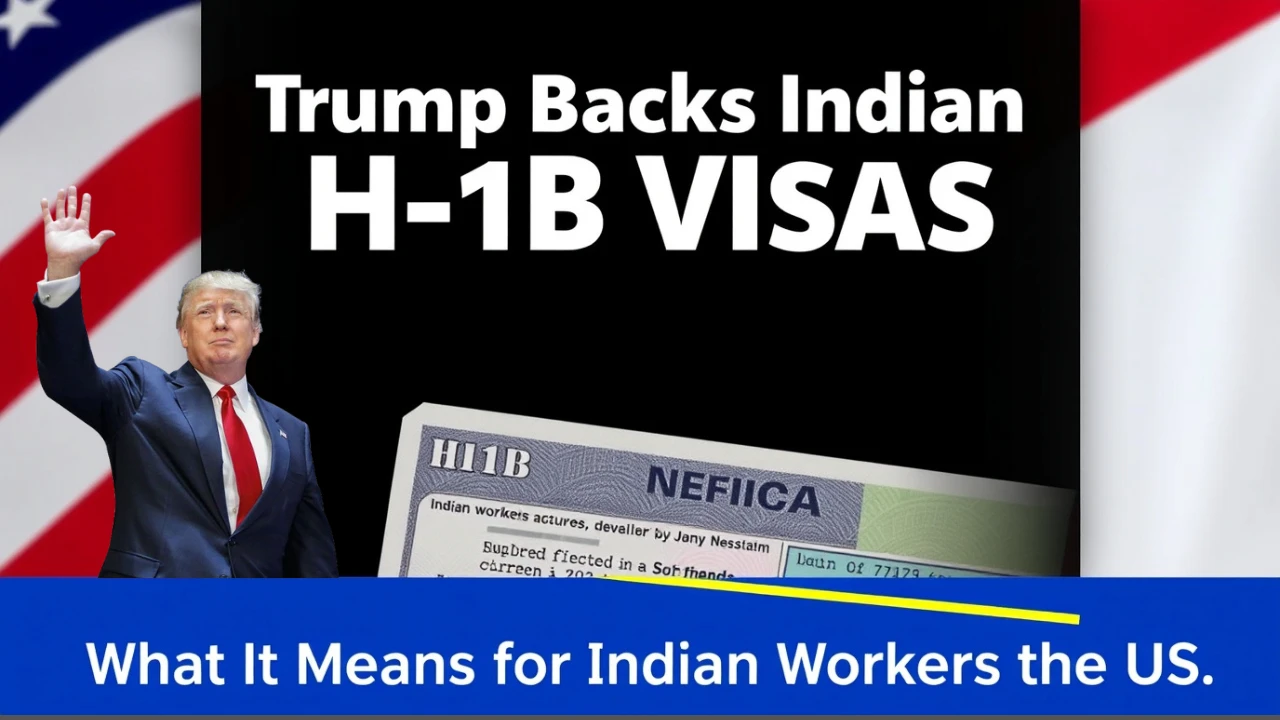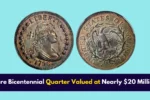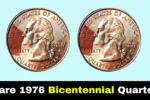Former President Donald Trump’s recent support for the H-1B visa program is creating waves, particularly among Indian professionals in the U.S. job market. The H-1B visa program, which allows U.S. companies to hire foreign workers for specialized roles, has long been a vital resource for industries reliant on skilled talent, especially in fields like technology and engineering. Indian workers have been the dominant force in this arena, contributing significantly to U.S. technological innovation. Trump’s backing of the program is seen as a game changer, raising questions about what this shift might mean for both Indian workers and U.S. industries.
Trump’s Endorsement: A Shift in Stance
Historically, Trump had been a vocal critic of the H-1B visa program, claiming it led to the displacement of American workers. However, in a recent interview, Trump took a different approach, saying, “I have many H-1B visas on my properties. I’ve been a believer in H-1B. I have used it many times. It’s a great program.” This statement marks a significant reversal from his previous position, signaling a potential shift in policy.
Implications for Indian Workers and U.S. Industries
Trump’s endorsement of the H-1B visa program could have positive implications for Indian professionals. His support might alleviate concerns regarding potential visa restrictions, encouraging more Indian workers to apply for roles in the U.S. Furthermore, the change in rhetoric could lead to a broader conversation about how the program can be reformed to enhance its fairness and efficiency.
Some possible policy reforms could focus on prioritizing high-salary or highly skilled applicants in the lottery system. As global competition for talent increases, the U.S. must ensure that its visa programs remain competitive while addressing domestic workforce concerns.
Understanding the H-1B Visa Program
The H-1B visa allows U.S. employers to hire foreign professionals in specialized fields, such as IT, healthcare, engineering, and finance. Every year, the U.S. Citizenship and Immigration Services (USCIS) limits the number of H-1B visas issued to 85,000, with 20,000 reserved for advanced-degree holders from U.S. institutions. While the application process is challenging, the program has enabled foreign workers, particularly from India, to fill critical roles in the U.S. economy.
Indian nationals make up the vast majority of H-1B visa holders, with nearly 70% of all H-1B visas granted to Indian professionals. This trend underscores the importance of the program to U.S. industries, particularly in Silicon Valley, where Indian workers have been instrumental in driving technological progress.
Why Trump’s Support Matters
Trump’s recent comments signal a change in perspective about the H-1B program. While he had previously criticized it, his current support comes amid a growing shortage of skilled workers in sectors like technology and healthcare. By endorsing the H-1B program, Trump is recognizing the crucial role that foreign talent plays in maintaining the U.S.’s competitive edge in these industries.
सम्बंधित ख़बरें
The H-1B program helps fill the gaps left by a domestic shortage of workers in specialized fields. With Trump’s support, there’s a possibility of reforms that focus on improving the program’s functionality, allowing it to better serve both U.S. companies and foreign professionals.
Potential Impact of Trump’s Stance
- Increased Confidence for Indian Professionals: With Trump’s support, Indian professionals may feel more secure in pursuing opportunities in the U.S. without fearing further restrictions on the H-1B program.
- Policy Reforms: Instead of restricting the program, discussions could pivot toward reforming it. Proposals might include prioritizing higher-paying roles or individuals with advanced degrees in the lottery system.
- Continued Industry Growth: U.S. companies, especially in tech, will continue to benefit from the talent pool provided by the H-1B program. This is vital to industries that depend on innovation to maintain global competitiveness.
H-1B Workers and Their Contributions
H-1B workers have played an essential role in several U.S. industries, from technology to healthcare. Here’s how they contribute:
- Technology: Tech giants like Google, Microsoft, and Apple rely on H-1B professionals to develop and innovate. These contributions strengthen the global presence of U.S. companies.
- Healthcare: Foreign doctors and researchers have been critical, particularly during the COVID-19 pandemic, contributing not just to patient care but also to medical research.
- Economic Impact: Studies show that H-1B workers contribute significantly to U.S. GDP and job creation, with each foreign worker often helping generate additional roles within a company or its supply chain.
- Education: Many H-1B holders also contribute to education and training in specialized fields, passing on valuable skills to the next generation of American professionals.
Debates and Concerns Surrounding the H-1B Program
While the H-1B program offers clear benefits, it also faces criticism. Some of the main concerns include:
- Displacement of American Workers: Critics argue that the H-1B program can lead to the hiring of cheaper foreign labor, which might displace U.S. workers. However, studies indicate that H-1B workers often complement rather than replace U.S. workers by filling highly specialized roles.
- Wage Suppression: Critics also argue that the program may depress wages in certain sectors. To address this, proposed reforms include raising minimum wage thresholds for H-1B jobs or prioritizing higher-paying positions in the lottery.
- Visa Abuse: There have been cases of fraud or exploitation, which has led to calls for stricter oversight. The Department of Labor audits employers to prevent such practices, and transparency measures are being considered to ensure more accountability.
Advice for Indian Professionals Seeking U.S. Opportunities
If you’re an Indian professional interested in the U.S. job market, here are some steps to take:
- Understand Eligibility Requirements: Ensure you have the necessary academic credentials, such as a bachelor’s degree in a specialized field, and secure a job offer from a U.S. employer willing to sponsor you.
- Prepare for the H-1B Lottery: The lottery is highly competitive, so it’s crucial to submit a complete application early, with the help of an immigration attorney if needed.
- Explore Alternatives: If the H-1B route is too uncertain, consider alternatives like the L-1 visa for intra-company transfers or the O-1 visa for individuals with extraordinary abilities.
- Stay Informed: Follow updates on H-1B policies through reliable sources and engage with professional networks to stay ahead of changes and opportunities.
- Networking: Attend industry events and job fairs to connect with potential employers and learn about trends in the job market.
Frequently Asked Questions About the H-1B Visa
- What is the annual cap for H-1B visas?
The U.S. issues 85,000 H-1B visas annually, with 20,000 reserved for applicants with advanced degrees from U.S. institutions.
- How long can you stay in the U.S. on an H-1B visa?
The visa is initially valid for three years, with the possibility of extending it to six years. Extensions beyond six years may be granted under specific conditions, such as a pending green card application.
- Can H-1B visa holders bring their families?
Yes, spouses and children under 21 can join the primary visa holder under H-4 visas. Spouses may work if they are eligible for an H-4 EAD (Employment Authorization Document).
- What industries hire the most H-1B workers?
Technology, healthcare, finance, and education are the largest employers of H-1B professionals.
- Are there proposed reforms to the H-1B program?
Yes, ongoing discussions include raising wage thresholds, prioritizing highly skilled applicants, and increasing oversight to prevent fraud.



